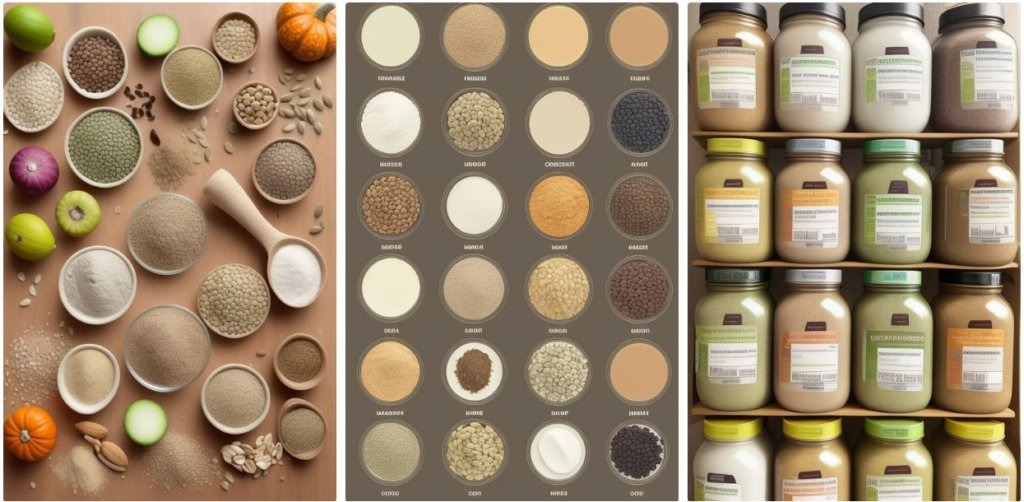Beyond Whey: The Rise of Plant-Based Protein Powders for Optimal Health

Table of Contents
Introduction
Whey protein has long been a staple in the world of fitness and nutrition, celebrated for its high biological value and muscle-building benefits. However, plant-based protein powders are gaining momentum as a viable alternative for those seeking optimal health without relying on animal products. This article explores the rise of plant-based protein powders, their benefits, and how they can support a healthy and sustainable lifestyle.
The Rise of Plant-Based Protein Powders
The shift towards plant-based protein powders is driven by several factors, including growing awareness of environmental sustainability, dietary restrictions, and personal health goals. Plant-based protein powders are derived from various plant sources, offering a nutritious and ethical alternative to traditional whey protein.
Benefits of Plant-Based Protein Powders
1. Nutritional Profile
Plant-based protein powders can provide a rich array of nutrients beyond protein, including fiber, vitamins, minerals, and antioxidants. Here are some common plant-based sources and their unique benefits:
- Pea Protein: Rich in iron and amino acids like leucine, which supports muscle growth and repair.
- Brown Rice Protein: Complements pea protein by providing additional amino acids and fiber.
- Hemp Protein: Contains essential fatty acids (omega-3 and omega-6) and fiber, supporting heart health and digestion.
- Pumpkin Seed Protein: High in magnesium, zinc, and antioxidants, promoting overall health and immune function.
- Chia Seed Protein: Provides omega-3 fatty acids, fiber, and a range of essential minerals.
2. Digestibility and Allergies
Plant-based protein powders are generally easier to digest for many individuals, particularly those with lactose intolerance or dairy allergies. They also offer hypoallergenic options compared to whey protein, which can be problematic for those with dairy sensitivities.
3. Sustainability and Ethical Considerations
Plant-based protein powders have a lower environmental footprint compared to animal-based proteins. They require less water and land, and produce fewer greenhouse gases, making them a more sustainable choice for health-conscious and environmentally aware individuals.
4. Support for Diverse Diets
Plant-based protein powders cater to various dietary preferences and restrictions, including vegan, vegetarian, and flexitarian diets. They provide an accessible protein source for individuals following plant-based or reduced-animal-product diets.
Choosing the Right Plant-Based Protein Powder
When selecting a plant-based protein powder, consider the following factors to ensure you choose a high-quality product:
- Protein Content: Look for powders with a high protein content per serving to meet your dietary needs.
- Amino Acid Profile: Opt for blends that provide a complete amino acid profile, combining different plant sources to ensure all essential amino acids are included.
- Ingredients and Additives: Choose products with minimal additives, artificial flavors, and sweeteners. Check for added nutrients like vitamins and minerals if needed.
- Digestibility: Some plant-based proteins may be more digestible than others. Consider options with added digestive enzymes if you have digestive sensitivities.
Popular Plant-Based Protein Powders
1. Pea Protein
Pea protein is a highly digestible, allergen-free protein source that supports muscle growth and recovery. It is often used in combination with other plant proteins to enhance its amino acid profile.
2. Rice Protein
Brown rice protein provides a good source of protein and is often combined with pea protein to create a complete protein profile. It is also gentle on the stomach and easy to digest.
3. Hemp Protein
Hemp protein offers a well-rounded nutritional profile, including omega-3 and omega-6 fatty acids. It has a slightly nutty flavor and is ideal for those seeking additional heart and digestive health benefits.
4. Pumpkin Seed Protein
Pumpkin seed protein is rich in essential minerals and antioxidants. It supports overall health and can be a great addition to smoothies and shakes.
5. Chia Seed Protein
Chia seed protein is known for its high omega-3 content and fiber. It adds nutritional value to protein shakes and can also be used in recipes for added texture and nutrition.
Incorporating Plant-Based Protein Powders into Your Diet
- Smoothies: Blend plant-based protein powder with fruits, vegetables, and a liquid base for a nutritious and satisfying smoothie.
- Baking: Add protein powder to baked goods such as muffins, pancakes, and energy bars for an extra protein boost.
- Shakes: Mix plant-based protein powder with water, almond milk, or coconut water for a quick and convenient protein shake.
- Recipes: Incorporate protein powder into recipes like soups, stews, and sauces for added protein content.
Conclusion
References
Plant-based protein powders offer a nutritious and ethical alternative to whey protein, supporting optimal health while catering to various dietary preferences and environmental concerns. By incorporating plant-based protein powders into your diet, you can enjoy a range of health benefits, including improved digestion, sustainable nutrition, and support for a diverse range of diets. Whether you’re vegan, vegetarian, or simply looking to reduce your environmental impact, plant-based protein powders are a valuable addition to your wellness routine.
- Mollah, M. S., & Selim, S. (2020). Nutritional and functional properties of plant-based protein powders. Food Science and Human Wellness, 9(1), 1-10.
- DeFronzo, R. A., & Tripathy, D. (2009). Oral protein supplementation and glucose homeostasis in healthy and type 2 diabetic individuals. Journal of Clinical Endocrinology & Metabolism, 94(8), 3077-3084.
- Messina, M. (2010). Nutritional and health benefits of soy protein. Journal of the American College of Nutrition, 29(2), 244S-248S.
adolescents americans bottles children cost considerations Dr.Peter attia fit Fitness fitness club membership fitness goals fitness program guide gym membership Health health benefits Hormones maintaining fitness membership cancellation membership fees Moms natural ingredients negative attitudes personal fitness program Physical Fitness Planet Planet fitness planet fitness usa planet usa radiant skin Sascha sascha fitness skin SKIN CARE skincare routine skin health Sleep starting a fitness program Stress supplements us USA water water bottles Weight Weightloss






Leave a Reply